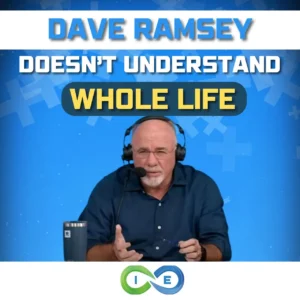People buy life insurance for a multitude of different reasons. These can include income replacement, debt payoff, business succession funding, and/or the payment of a funeral and other final expenses of the insured.
Depending on how long it takes to receive a life insurance death benefit can be a primary factor in whether or not survivors and/or other beneficiaries struggle financially. So, it can help if you know what to anticipate, as well as ways that you may be able to speed up the death benefit payout process.
How Life Insurance Death Benefit Payouts Work
While most people don’t like to dwell on it, the reality is that life insurance is an essential part of most peoples’ portfolios – and not just for those who have young children and families to protect.
There are many reasons why life insurance is purchased. For instance, it can help with paying off debts and replacing income that will no longer be brought into the household by the insured.
The proceeds from a life insurance policy can also help insureds to “keep their financial promises,” like funding a child’s or a grandchild’s future college education or providing much needed money for a favorite charity.
In any case, when the insured passes away, the life insurance proceeds are paid out to one or more named beneficiaries who are listed on the policy.
But the length of time that it takes to receive these funds is often dependent on whether or not all of the right paperwork is submitted to the insurance company.
There are several other factors that can also dictate how long it takes to receive life insurance death benefits.
When Do Beneficiaries Receive Death Benefit Proceeds from a Life Insurance Policy?
Not all life insurance companies use the exact same process for filing a death benefit claim. However, there are many similarities.
Life insurance policies will usually outline the procedure for submitting a claim – which includes the window of time that beneficiaries have for doing so.
With that in mind, the best place to start is by reading the policy and/or contacting the claims department at the life insurance company.
If you are filing a claim on a life insurance policy that is part of the insured’s employee benefits package at work, then contacting the human resources department is another good alternative for getting the process underway.
Claim form
Generally, there will be a claim form to file with the insurer.
Online
Today, many life insurance companies allow you to file a claim online.
Death Certificate
The insurance carrier will also require you to forward a certified copy of the death certificate. This can usually be obtained through the funeral home that conducts the service or via your state’s vital records department.
Other Docs
Other supporting documents that may be required to send the insurance company can include the following:
- Proof of your / the beneficiary’s identity (such as a copy of your driver’s license)
- Obituary or newspaper article regarding the insured’s death
- A police report (if the insured died as the result of an accident)
- Toxicology report
- Autopsy report
- Coroner’s report
- Medical examiner’s report
- Medical records
In the rare instance that an insured has gone missing and is presumed to be deceased, then the insurance carrier may require you to submit a court order that states his or her presumable death.
30 Days
Once all of the required paperwork has been received by the insurer, the carrier must make a final determination regarding the payment of the claim within 30 days.
In many cases, the death benefits are received by the beneficiary(ies) within 30 to 60 days after submission of the claim form and other necessary documentation.
It is recommended that you file a death benefit claim as soon as possible, as this can expedite the payment of the proceeds.
Depending on the insurance company and the circumstances surrounding the death of the insured on the policy, the death benefit funds could even be received in as little as just one or two weeks. This can help tremendously if you need these funds quickly for making funeral and burial arrangements and/or other obligations.
Options for Taking Life Insurance Death Benefit Proceeds
Although may beneficiaries opt to receive life insurance proceeds in one single lump sum payment, there are typically other options available, too. These may include one or more of the following:
- Annuity Options.
- Proceeds Held at Interest.
- A Personal Transition Account.
In lieu of just one large death benefit payout, many life insurance companies offer an annuity option where the proceeds are paid out to the beneficiary(ies) on a regular basis in installments.
These may be paid out for a preset period of time, such as ten or fifteen years, or until the balance is exhausted. In this case, the principal that is received by the beneficiary would be income tax-free, but the interest would be taxable.
Some insurers may offer an annuity payout option with a life contingency. This means that the payouts will continue for the remainder of the beneficiary’s lifetime – regardless of how long that is. When the beneficiary / recipient dies, payments might even continue for his or her survivor (such as a spouse or partner).
If proceeds are held at interest, the insurance carrier will hold the funds – and the money earns interest at a declared rate. The beneficiary(ies) will have access to the entire amount of the proceeds at any time. In this case, any withdrawals that are made may have to be at least a minimum dollar amount.
The personal transition account is also a type of lump sum payment option for life insurance policy beneficiaries. This option also offers interest – typically at a set rate – that is paid on the balance at the insurer, as well as access to the money any time. The beneficiary(ies) can oftentimes obtain funds via a checkbook in large or small sums.
Many life insurance companies today will send life insurance benefit payments via electronic funds transfer to the beneficiary(ies) bank account. But there are some that will provide the funds in the form of a paper check.
THE ULTIMATE FREE DOWNLOAD
The Self Banking Blueprint
A Modern Approach To The Infinite Banking Concept

Reasons Why a Life Insurance Benefit May Be Denied
While life insurance death benefits are usually paid out after a claim has been filed, there are some instances where the payout may be denied or delayed.
Even though life insurance is considered a legally binding contract between the insurer and the policyholder, the policy will typically contain some stipulations that must be met in order for the claim to go through.
Some of the most common reasons why a life insurance benefit may be denied or delayed include the following:
Contestability Period
The insured passed away during the “contestability” period. Insurance policies typically have contestability periods during which the insurer has the right to contest a claim that is made.
As it pertains to life insurance, if there is misinformation (or missing information) regarding the insured’s health on the application – and a claim is filed within the two-year contestability period – the insurance company has the right to investigate, and ultimately to deny the claim.
Items of this nature could include stating that the insured is a non-smoker when in fact they actually do smoke, or not including pre-existing health conditions like heart disease or high blood pressure.
It is important to note that if death occurs after the contestability period has elapsed, then the death benefit will generally be paid.
Exclusions
The way in which the insured died is not covered in the life insurance policy. A death benefit may not be paid out if the cause of death is not covered in the policy.
There are actually several types of exclusions that could be included in a life insurance contract.
Typically, these include death by suicide (within a certain period of time after the policy was issued), drug or alcohol abuse, homicide (particularly if the beneficiary is suspected of murdering the insured), illegal activities (such as driving while under the influence of alcohol), dangerous activities or hobbies (like death that occurs in a skydiving accident), and acts of war.
Lapsed
The policy lapsed due to non-payment of the premium. If the premiums are not up to date, it is possible that a life insurance policy will lapse, rendering the coverage as terminated. Most insurers will include a grace period where the premium may be paid after the due date in order to keep the coverage in-tact.
Expired
The policy has expired. It is also possible that a life insurance policy could expire. For instance, term life insurance will only remain in force for a certain period of time, or “term,” such as 10 years or 20 years.
If the insured outlives the coverage, it could expire, unless it is renewed (oftentimes requiring a higher premium payment that is based on the insured’s then-current age and health condition).
No Beneficiary
There is no beneficiary listed (or no contingent beneficiary) on the policy. If there is no beneficiary named on the policy, the insurer may hold the funds. However, in some states, when a beneficiary is not named on a policy, the proceeds are paid according to the law.
For instance, a surviving spouse, children, or parents may receive the funds. It is also possible that there is a primary beneficiary named, but no contingent beneficiary listed. In this instance, if the primary beneficiary pre-deceases the insured, there will be no one named as a “back up” recipient.
Minor Beneficiary
The policy’s beneficiary is a minor. A minor child is not allowed to receive life insurance proceeds if they do not have a guardian. Therefore, a claim could be delayed until the proper guardianship documents have been filed.
The named beneficiary is too vague. In some cases, an individual will simply name their “children” or “grandchildren” as the beneficiaries on life insurance. Going this route could result in a delayed benefit payment, until the insurance company is able to locate all of the recipients.
Fraud
Possibility for life insurance fraud. Insurance companies will often look into life insurance claims in order to determine whether or not they are fraudulent. If this is the case, the payment of the claim will be denied.
How To Avoid Life Insurance Payout Delays
To help with avoiding delays in the payout of life insurance proceeds, there are several things that you can do, such as:
- Ensure that the information provided on the claim form and other documents is correct and complete
- Have all information sent to the insurer in a timely manner
- Make sure that the premiums on the policy are up to date and that the policy is in-force
It is also absolutely essential that you regularly review your life insurance coverage and beneficiaries – especially if you have had any type of major life change such as marriage or divorce, or the birth or adoption of a child.
This is because an unintended individual (or individuals), such as an ex-spouse, could end up receiving the death benefit proceeds. Conversely, you could end up unintentionally disinheriting someone if their name is not added to the policy.
State Laws
Some states have laws regarding life insurance death benefit payouts.
For instance, some states require life insurance carriers to check their list of policyholders on a periodic basis against the Social Security Administration’s death records.
This is done so that people won’t receive access to unclaimed benefits. With the rise in internet crime and identity theft, this issue has become more prevalent over the past decade or so.
Life Insurance Death Benefits and Taxes
Usually, life insurance is not taxable but if the insured is also the owner of a life insurance policy (either directly or indirectly), the value of the death benefit could be included in their gross estate. This being the case, it may count towards estate taxation.
However, the death benefit proceeds that are received by the beneficiary(ies) are not subject to income taxes. Therefore, the recipient(s) will be able to use all of the funds for whatever financial needs they may have.
Creditor Protection
Another benefit is life insurance creditor protection.
For instance, typically, the deceased’s debt cannot be collected from life insurance beneficiaries. (However, if the beneficiary(ies) has predeceased the insured, then it is possible that the funds will instead be paid out to his or her estate, and in turn, subject to creditors).
With that in mind, it is recommended that in addition to listing one or more primary beneficiaries, contingent beneficiaries are also named in the policy.
Why an Insurance Company’s Financial Strength Matters
With any type of financial transaction, it is always important to make sure that the company behind the insurance or investment is financially strong and stable, and that it is in a position to make good on its promises.
This is particularly true when it comes to life insurance, as beneficiaries are oftentimes relying on those funds for specific needs – and could find themselves struggling financially if the proceeds are denied or unpaid due to other circumstances.
One way to help with determining the financial stability of an insurer is to check the ratings that are given to the carrier by one or more of the independent ratings agencies. These include Standard & Poor’s, A.M. Best, Moody’s, Fitch, and Kroll Bond Rating Agency.
Will Your Loved Ones Struggle Financially If the Unexpected Occurs?
If anyone is depending on you for some or all of their financial support – or if you are an owner or a partner in a business and the company would need cash to move forward upon your passing – life insurance could be a solution.
The funds that are received by life insurance beneficiaries can oftentimes make the difference between struggling financially or moving forward during an already difficult emotional time.
In order to ensure that you have enough coverage – as well as the right type of life insurance protection for your specific needs – it is recommended that you discuss your objectives with a specialist in this area.
So, if you would like to schedule a no-cost, no-obligation time to talk with an expert, contact Insurance and Estates via phone by calling (877) 787-7558 or you can send us an email at info@insuranceandestates.com.
THE ULTIMATE FREE DOWNLOAD
The Self Banking Blueprint
A Modern Approach To The Infinite Banking Concept





